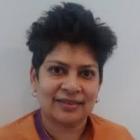
A quiet sense of satisfaction. That’s what I felt at this year’s Internet Governance Forum (IGF), when gender moved out of the wings and came onto the main stage: here, there, everywhere. In 2013 at the IGF in Bali, the first IGF I attended, gender was there – but with what Fatimi Mernissi, the feminist Moroccan writer who passed away recently, might have called a mild sense of trespass. Somewhat tentative, unsure of her place, emerging in bits and pieces, most vocally in protests around Miss Internet Bali. In 2014 at the IGF in Istanbul, gender spoke louder and in many more places, but had yet to come into her own. At this IGF, years and years of untiring – and pioneering work – visibly paid off. Critical mass was achieved. Gender came into her own. Not just in dedicated sessions, but here, there, everywhere: in hallways, in side-conversations, in main sessions, in places expected and unexpected.
Even before the conference had formally launched, on day zero itself, we were exploring the links between gender, technology, violence and free expression. A session on Gender and the Internet conclusively established how women face a continuum of violence from the offline to the online, some of which is enabled by technology. It demolished the myth that online violence is less real than offline, demonstrating how similar digital violence is to its physical counterpart. Both cause actual harm, including that which is emotional and psychological; in both, a known person is often behind the violence; both have a chilling effect on speech and expression, including women’s abilities to speak up about the violence they experience; and in both, the State and non-State actors must act to end such violence. In the case of online violence, intermediaries still represent a grey area: how can we move intermediaries away from a hands-off approach to abuse that takes place on their platforms to recognizing that they have a role to play in preventing it? That remains a big question.
Sexual images that are consensually distributed need to be upheld as free expression, just like other forms of expression – political, artistic, religious – are upheld.
Related questions were explored at other sessions into which gender crept in, sometimes without explicitly being invited. At a session on Freedom of Expression , we discussed what happens when intimate images meant for private pleasures are made public without consent and how the resulting fallout is always on the women who are in these images; can such non-consensual circulation ever be called free expression? No; they need to be put in the basket of privacy violations instead, and taken as seriously as any other violation of privacy. (No hierarchies, please). On the other hand, sexual images that are consensually distributed need to be upheld as free expression, just like other forms of expression – political, artistic, religious – are upheld. Problem is, sexual expression is seen as a stigmatised form of expression, even though everything from anecdotes to surveys show that the internet has emerged as the space for sexual expression, be it providing information, sexual education, for personal exploration, or for claiming sexual rights.
How do we ensure that governments don’t conflate our sexual stories and expressions with porn – and ban or block them?
Nowhere was this more in evidence than at the historic session on LGBT rights , historic because it was the first time a full session was dedicated to LGBT rights at an IGF. It took ten IGFs to get here, but so what? Now that we’re here, we’re here to stay. ’“Queer liberation starts by telling our own stories, which we were told are not worthy of telling,” said one speaker. What is this storytelling if not expression of our sexualities? How do we ensure that our stories can be freely told, our lives freely expressed online? How do we ensure we have the privacy and anonymity we need to express ourselves online? And how do we ensure that governments don’t conflate our sexual stories and expressions with porn – and ban or block them? That remains another big question.
Gender. Sexuality. Identity. While IGF is officially yet to recognise the deep links between these, we celebrated their inter-connections at the launch of GISWatch, whose theme this time is sexual rights . Authors from 37 countries contributed to a growing body of knowledge around sexuality, which as GISWatch’s editor writes, “goes to the heart of who we are as human beings” and is simultaneously public, private, and political, a quest that is intellectual, emotional and sensual.
But gender does not mean women, as is often mistakenly assumed. It means all genders.
We continued exploring the links between gender and identity at the annual meeting of the Gender Dynamic Coalition, where we agreed that gender is an integral aspect of internet governance. But gender does not mean women, as is often mistakenly assumed. It means all genders. We want all genders – women, men, trans, intersex – to shape and define internet governance. And we want diversity within the ‘gender’ category itself. We want different genders that are present in internet governance spaces to represent different geographies, languages, and ethnicities. At this annual meeting, we decided to create a sexual harassment policy as a concrete step to ensure that all genders can participate in internet governance and hope to have this in place by the next IGF – to be held in Mexico in 2016.
Access must mean access to everything, including play and leisure and a chance to loiter on networks for whatever we want, regardless of our gender.
Gender continued its onward march at this IGF, culminating in the closing plenary where APC’s Nadine Moawad spoke truth to power , a deep feminist politics underlying her trademark-Nadz style speech. Nadz said it like it is: that free expression online is not about those with more power bullying those with less, but about those with less power being able to challenge the powerful and the privileged. That access to the internet cannot translate into ‘good’ and ‘bad’ access, with women being seen as those who use the internet for ‘good’ purposes: education, health, research. Boring. Conditional. Access must mean access to everything, including play and leisure and a chance to loiter on networks for whatever we want, regardless of our gender. Full unconditional access.
And so the 10th IGF came to a close, leaving behind a quiet sense of satisfaction. We had shared our stories. We had made our mark. We are here to stay.
Image: Broadband internet solutions by WikiMedia Commons . Published under the Creative Commons Attribution-Share Alike 4.0 International license .
- 9405 views






Add new comment